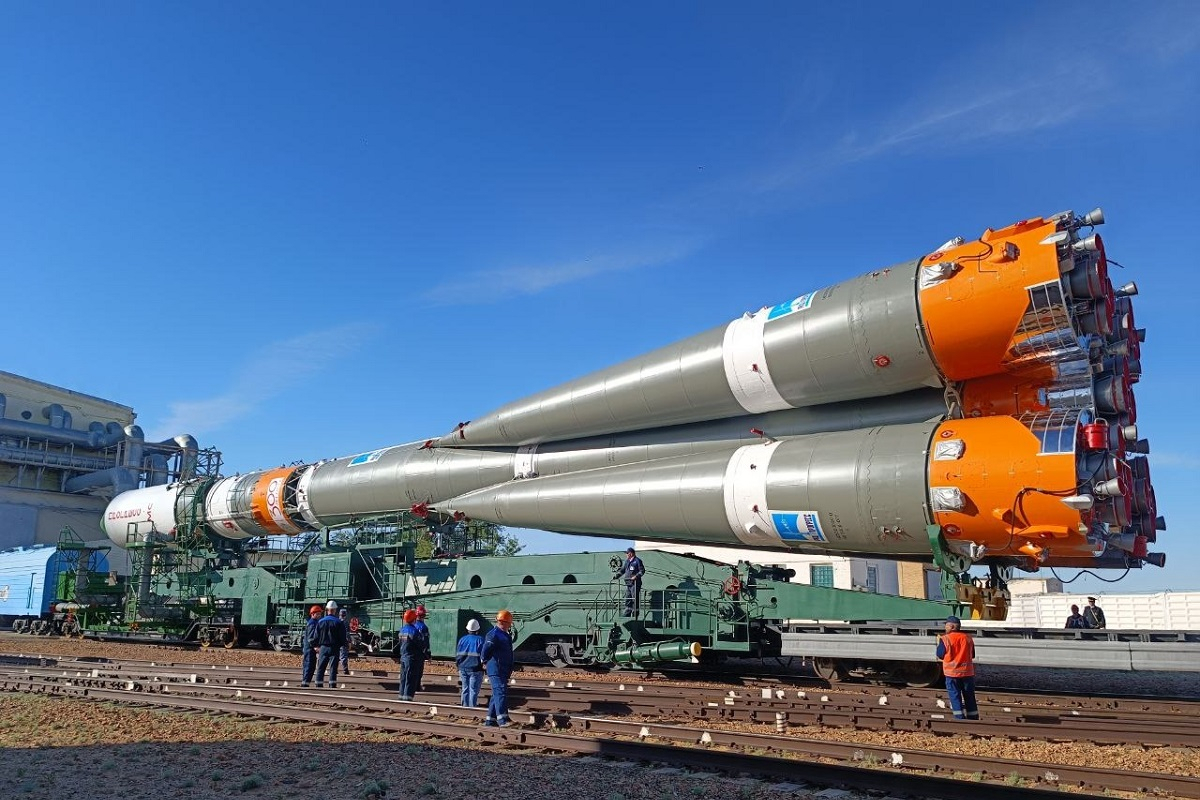A rocket bearing the University’s logo to be launched into space to mark the 300th anniversary of St Petersburg University
On 30 May, a Soyuz rocket carrying the Progress MS-27 cargo spacecraft was launched from the Baikonur Cosmodrome. The rocket’s fuselage is decorated with a livery dedicated to the 300th anniversary of St Petersburg University, the oldest classical university in Russia.

In addition to the logo of the 300th anniversary of St Petersburg University, the Soyuz rocket’s fuselage will carry stickers dedicated to: the 90th anniversary of Alexei Leonov, the Russian cosmonaut who became the first person to conduct a spacewalk; and the 65th anniversary of the birth of Russian students’ teams.
A broadcast of the event will be available to all students and staff on a large screen in the Assembly Hall at 6 Birzhevaya Line. Mikhail Kotov, a science journalist and Roscosmos media expert, will talk about rocket launches and the development of space technology. He will also comment on the launch and entry into orbit of the rocket bearing the University’s logo.
Evgenii Zadoia, Development Director of the Tour Operator "Travel Experience Russland"
For reference: to mark the anniversary of St Petersburg University, the International Astronomical Union named a small planet in the asteroid belt of the Solar System in honour of the University. Earlier, the University’s flag was delivered to the International Space Station and the University students and staff received congratulations from the cosmonauts. St Petersburg University dedicates the rocket launch to all graduates of the University’s anniversary year.
Today, there are ten student teams at St Petersburg University: five teaching teams, one archaeological team, one agricultural team, one environmental team, one medical team, and one team of train conductors. Students in the teaching teams work as counsellors in children’s camps. The Archaeological Team takes part in excavations, and the Agricultural Team harvests crops. Conductors are responsible for the conveyance and passengers on trains that go to 15 destinations across Russia. The Medical Team work in district hospitals, and the Environmental Team look after animals and plants in nature reserves.

